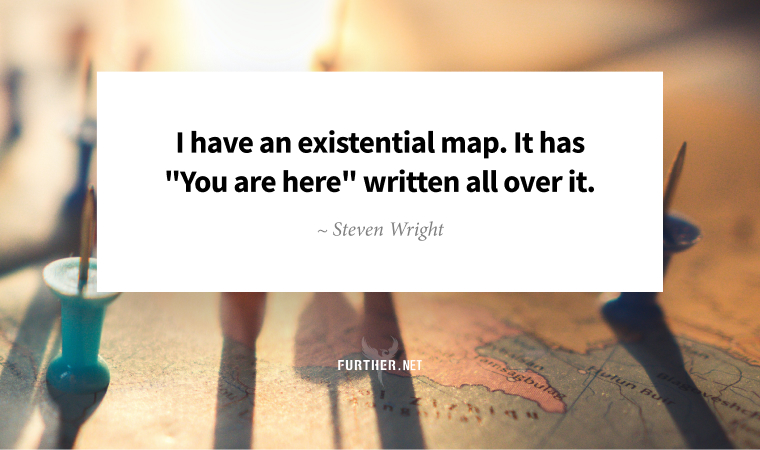
So many existential crises, so little time. Amirite?
It might feel like everything is going up in flames, but we didn’t start the fire. As Billy Joel noted:
The world’s a mess. It’s always been a mess, it’s always going to be a mess.
That doesn’t let us off the hook, though. I’ve spent many sleepless nights contemplating ways to start cleaning up the mess we’ve made. This often feels futile, like trying to crack a riddle, wrapped in a mystery, trapped inside an enigma.
Turns out this is a smart response to life’s Big Questions. From the vantage point of midlife — having not inherited the earth from our ancestors but in the midst of borrowing it from our children (paraphrasing the proverb) — it’s time to cultivate existential intelligence.
The DL on Ex I
Back in the day, only one kind of intelligence “counted”: the intelligence quotient (IQ), which theoretically measured reasoning ability. In response to this reductionist, biased approach, late-20th century theorists developed more inclusive models, including Daniel Goleman (emotional intelligence), Robert Sternberg (analytical, contextual, and experiential), and, notably, Howard Gardner.
Gardner argued that intelligence couldn’t be boiled down to a number, so he created the theory of multiple intelligences in 1983. Initially, he identified eight categories, including linguistic, logical/mathematical, spatial, bodily-kinesthetic, musical, interpersonal, intrapersonal, and naturalist. A dozen years later, he added existential intelligence (Ex I), which is:
The cognitive capacity to raise and ponder “big questions” — queries about love, about evil, about life and death — indeed, about the nature and quality of existence.
The characteristics of EX I include an interest in deep topics, self-awareness, spirituality, being of service, and upholding universal values (i.e., peace, truth, love). While Gardner is careful to emphasize the theoretical aspect of EX I as he’s not sure about the neurological correlation, during the pandemic, he noticed a resurgence of interest in the theory.
Developing Existential Intelligence
If you want to kick the existential blues, you’ve got to be smart about it. And luckily, you don’t have to be a philosopher, academic, or theologian to develop existential intelligence. Here are some strategies to foster connection and increase your sense of well-being, even as the Big Questions (and the rest of our planet) continue to burn:
- Be open-minded: Explore and integrate other realities and approaches into your belief system.
- Talk about it: Discuss and debate deep questions with others.
- Get conscious: Practice meditation and mindful contemplation.
- Promote unity: Get involved with activities in your community that bring people together.
- Practice self-care: Keep your body, mind, and spirit strong.
After all, questioning the meaning of life ain’t for the meek. But since we’ve inherited the earth, it’s on us to spark ideas and light the way to a better future.
Existential Intelligence: The Last of Howard Gardner’s Multiple Intelligences (Exploring Your Mind)
